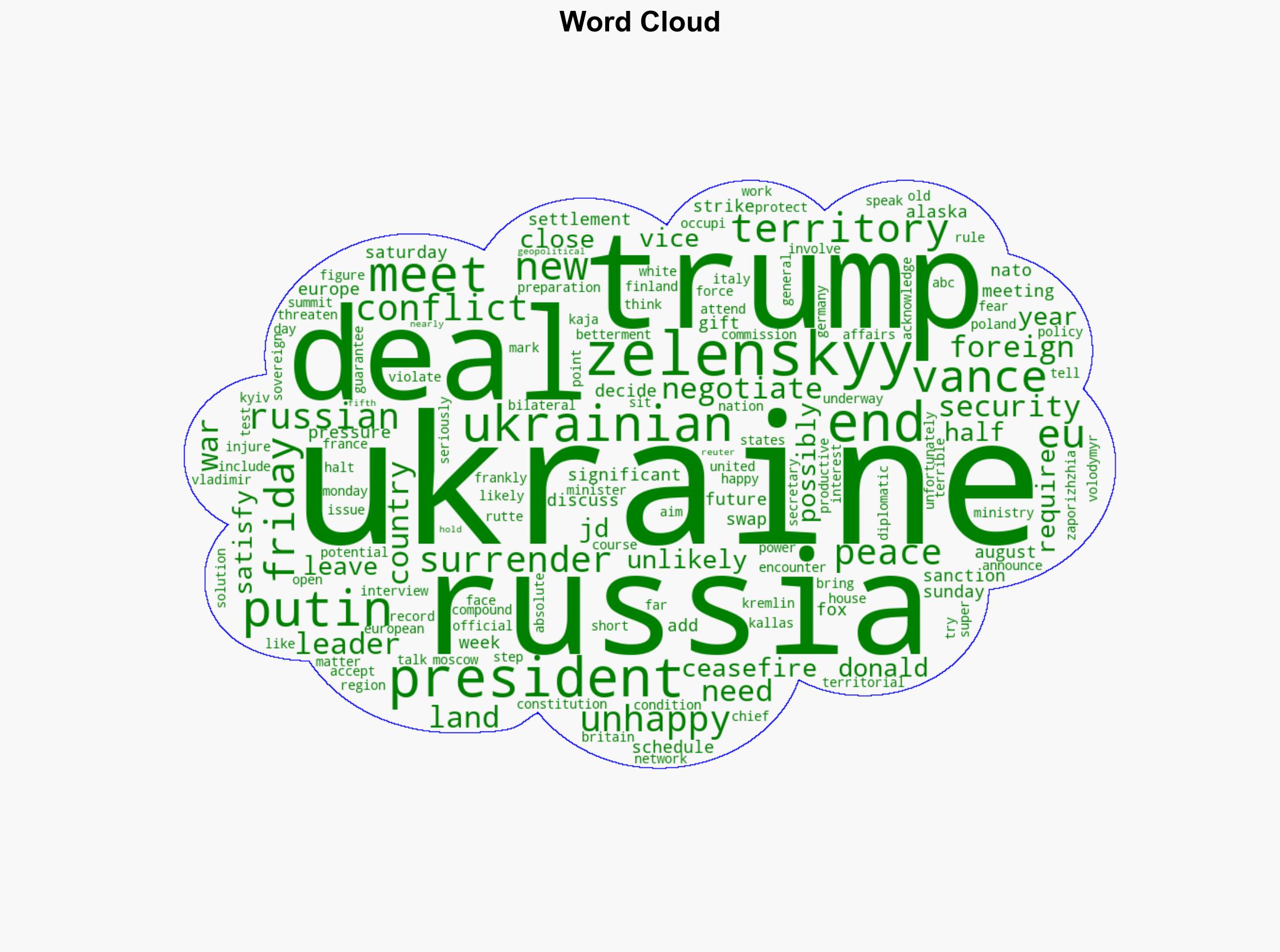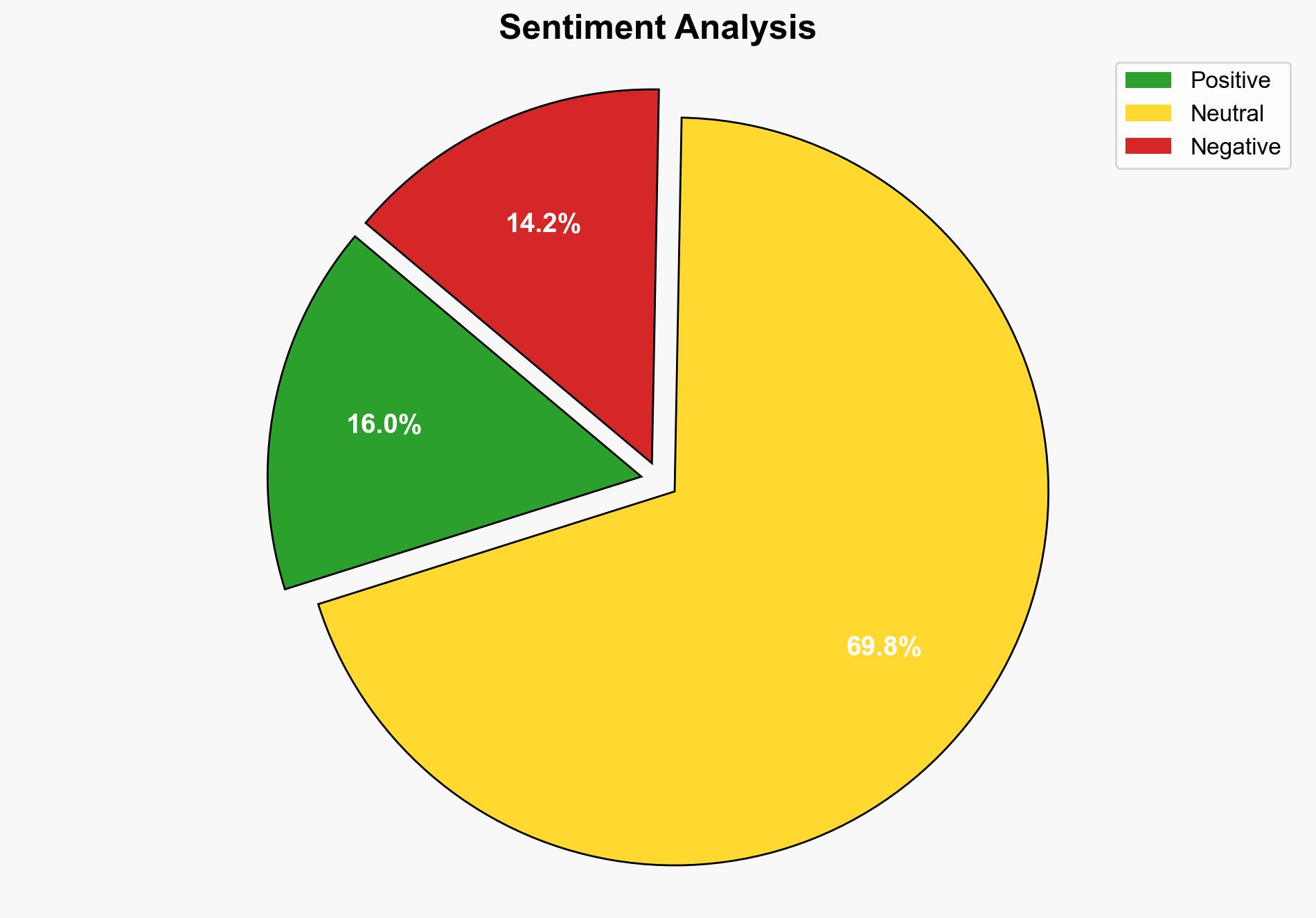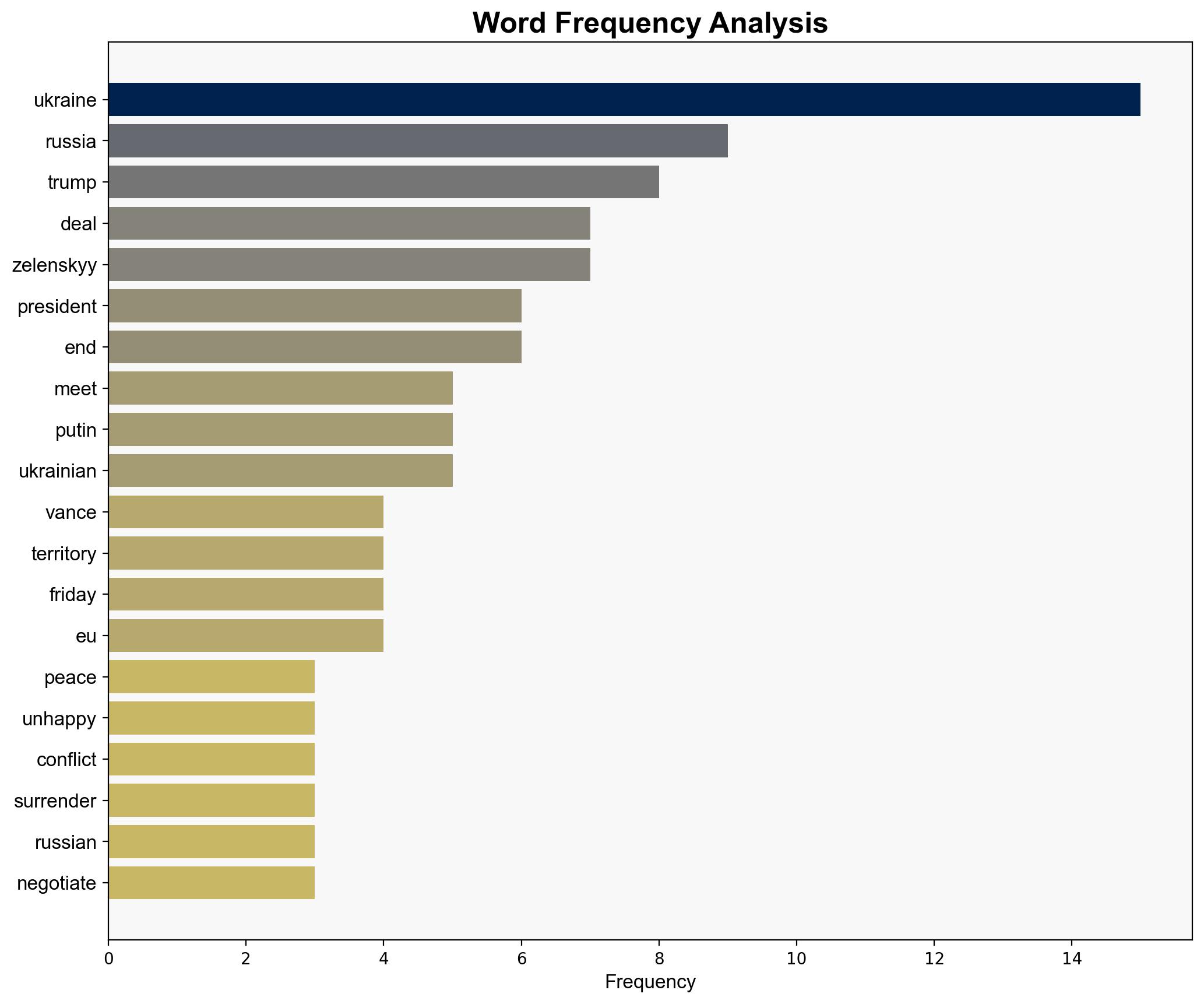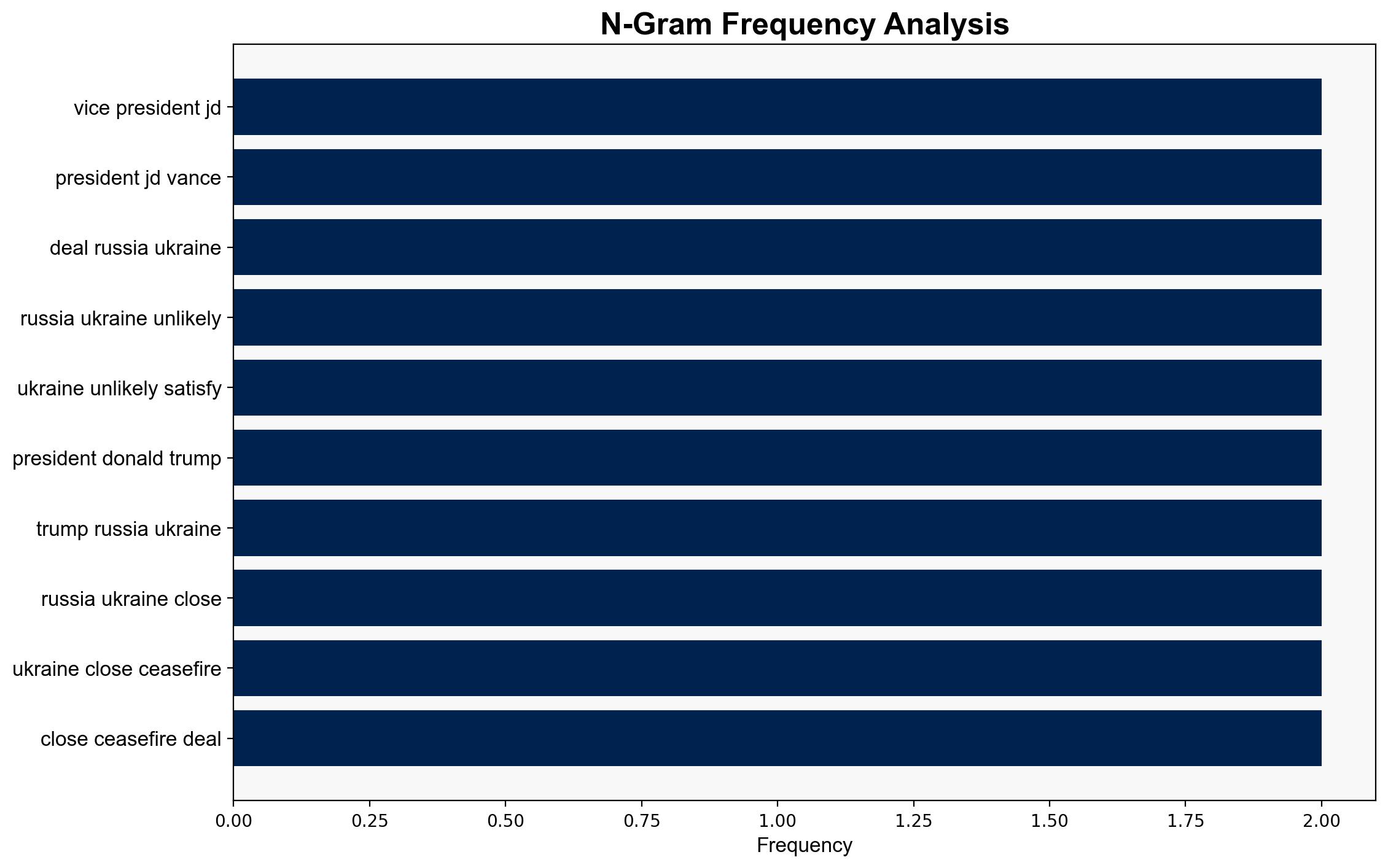Vance says Ukraine-Russia peace deal would leave both sides ‘unhappy’ – ABC News (AU)
Published on: 2025-08-10
Intelligence Report: Vance says Ukraine-Russia peace deal would leave both sides ‘unhappy’ – ABC News (AU)
1. BLUF (Bottom Line Up Front)
The most supported hypothesis is that a peace deal between Ukraine and Russia, potentially brokered by external parties, will result in dissatisfaction on both sides due to territorial concessions and geopolitical implications. Confidence level: Moderate. Recommended action: Encourage multilateral diplomatic engagement to ensure any agreement respects Ukraine’s sovereignty and addresses regional security concerns.
2. Competing Hypotheses
Hypothesis 1: A peace deal will be reached, involving significant territorial concessions by Ukraine, leading to dissatisfaction on both sides but achieving a temporary cessation of hostilities. This hypothesis is supported by reports of potential territory swaps and ongoing negotiations involving high-level leaders.
Hypothesis 2: No sustainable peace deal will be reached due to irreconcilable differences and external pressures, leading to continued conflict. This is supported by Ukraine’s constitutional stance against territorial concessions and the lack of consensus among international stakeholders.
Using Analysis of Competing Hypotheses (ACH), Hypothesis 1 is better supported due to the ongoing diplomatic efforts and reported preparations for high-level meetings, despite the dissatisfaction it may cause.
3. Key Assumptions and Red Flags
Assumptions:
– Both parties are willing to negotiate despite potential dissatisfaction.
– External actors can effectively mediate and influence the outcome.
Red Flags:
– Ukraine’s constitutional prohibition on territorial concessions.
– Potential misalignment of interests among international mediators.
– Lack of concrete details on the proposed peace deal.
4. Implications and Strategic Risks
A peace deal based on territorial concessions could set a precedent for resolving conflicts through coercion, potentially destabilizing the region. The dissatisfaction of both parties might lead to a fragile peace, increasing the risk of future escalations. Economic sanctions and geopolitical tensions could further strain international relations, impacting global markets and security alliances.
5. Recommendations and Outlook
- Encourage inclusive negotiations involving all regional stakeholders to ensure a balanced outcome.
- Strengthen support for Ukraine’s sovereignty through diplomatic and economic means.
- Scenario-based projections:
- Best Case: A comprehensive peace deal is reached, stabilizing the region and fostering economic recovery.
- Worst Case: Breakdown of negotiations leads to intensified conflict and regional instability.
- Most Likely: A temporary ceasefire is achieved, with ongoing diplomatic efforts to address unresolved issues.
6. Key Individuals and Entities
– Donald Trump
– Vladimir Putin
– Volodymyr Zelenskyy
– JD Vance
– Kaja Kallas
7. Thematic Tags
national security threats, geopolitical stability, diplomatic negotiations, regional focus




